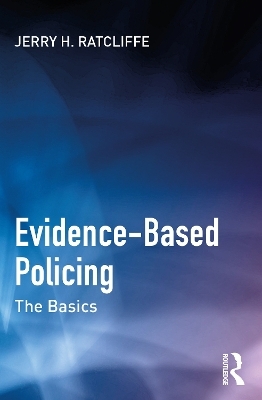
Evidence-Based Policing
Routledge (Verlag)
978-0-367-70325-7 (ISBN)
What is evidence-based policing and how is it done? This book provides an answer to both questions, offering an introduction for undergraduate students and a hands-on guide for police officers wanting to know how to put principles into practice. It serves as a gentle introduction to the terminology, ideas, and scientific methods associated with evidence-based policy, and outlines some of the existing policing applications.
A couple of introductory chapters summarize evidence-based policy and its goals and origins. The core of the book eases the reader through a range of practical chapters that answer questions many people have about evidence-based practice in policing. What does good science look like? How do I find reliable research? How do I evaluate research? What is a hypothesis? How do randomized experiments work? These chapters not only provide a practical guide to reading and using existing research, but also a roadmap for readers wanting to start their own research project. The final chapters outline different ways to publish research, discuss concerns around evidence-based policing, and ask what is in the future for this emerging field. Annotated with the author’s own experiences as a police officer and researcher, and filled with simple aids, flowcharts, and figures, this practical guide is the most accessible introduction to evidence-based policing available. It is essential reading for policing students and police professionals alike.
Further resources are available on the book’s website at evidencebasedpolicing.net.
Jerry H. Ratcliffe is a former British police officer, Professor of Criminal Justice at Temple University, US, and host of the popular Reducing Crime podcast.
1. What is evidence-based policing? 2. What are the origins of evidence-based policy? 3. What does good science look like? 4. What is the scientific method? 5. How do you identify a specific problem? 6. How do you find reliable research? 7. How do you evaluate policy research? 8. How do you develop a hypothesis and research question? 9. What are some core research concepts? 10. How do you make research methodology choices? 11. How do randomized experiments work? 12. How do you design a powerful experiment? 13. How do you know if an intervention is significant? 14. Where do you publish results? 15. What are the challenges with evidence-based policing? 16. What is next for evidence-based policing?
| Erscheinungsdatum | 12.12.2022 |
|---|---|
| Zusatzinfo | 38 Halftones, color; 38 Illustrations, black and white |
| Verlagsort | London |
| Sprache | englisch |
| Maße | 129 x 198 mm |
| Gewicht | 820 g |
| Themenwelt | Recht / Steuern ► Allgemeines / Lexika |
| Recht / Steuern ► EU / Internationales Recht | |
| Recht / Steuern ► Strafrecht ► Kriminologie | |
| Recht / Steuern ► Strafrecht ► Strafverfahrensrecht | |
| ISBN-10 | 0-367-70325-4 / 0367703254 |
| ISBN-13 | 978-0-367-70325-7 / 9780367703257 |
| Zustand | Neuware |
| Haben Sie eine Frage zum Produkt? |
aus dem Bereich


